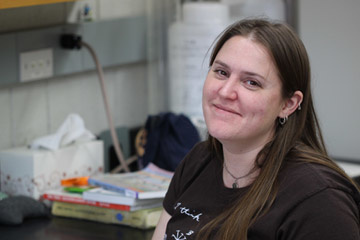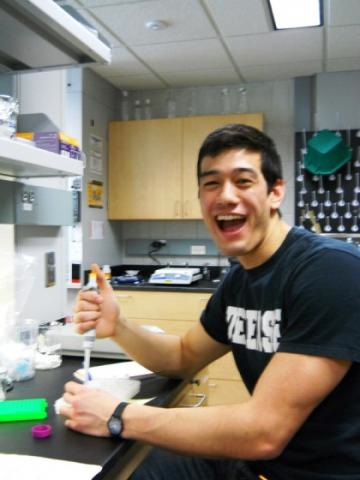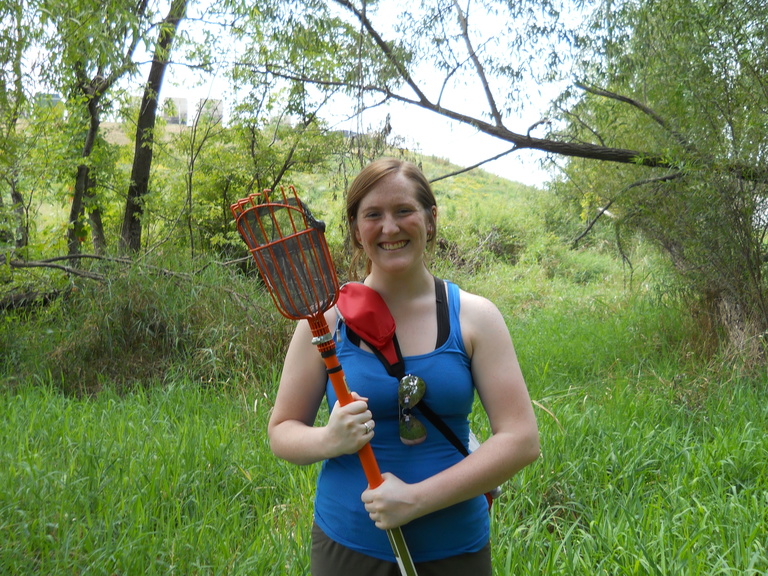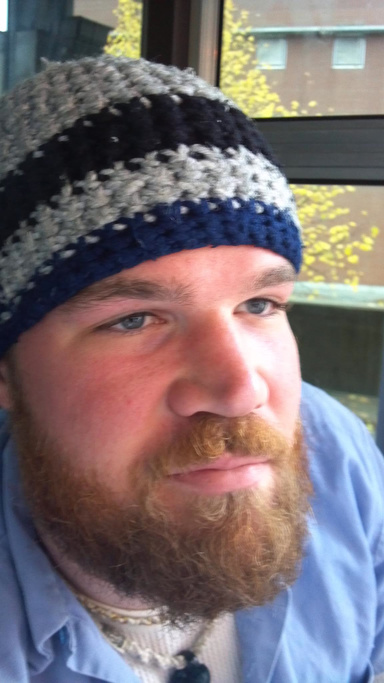
When University of Iowa graduate student Amanda Nelson set out to study insect populations at 250 sites throughout Johnson County, she knew she would need a lot of help.
The support came from a dozen undergraduate students at the UI, who worked with her for three years and got an inside, hands-on look into a possible career as an ecologist.

“I got into this project largely because it seemed like a great opportunity to see what aspects of research most appealed to me,” says Johnathan Kaiser, of Ames, who graduated last spring with a bachelor’s in biology. “Amanda’s project provided a really unique take on the research experience by providing a blend of ecological field work with the more regular lab experience.”
The students helped Nelson scout black cherry and black walnut trees at each site, and collect fruits and fly larvae. The undergraduates, ranging from incoming freshman to seniors, found that fieldwork could bring new surprises each day.

“The day-to-day field experiences varied because we collected fruit come rain or shine, hot or cold, in urban, natural, and agricultural landscapes, which meant improvising and thinking on our feet was essential.” says Katie Weldon, of West Des Moines, who graduated with a bachelor’s in environmental science and a certificate of sustainability in 2013.
“Every data point had a story, and it made the field experiences really fun and interesting,” she adds.
The UI students complemented their field work with analysis in the lab, by caring for the larvae, counting them, and determining their sex. Once the flies emerged, the students learned laboratory techniques such as DNA extraction and polymerase chain reaction, which uses short laboratory-made DNA sequences to isolate and magnify a gene by making thousands of copies of it.
“Any exposure to a new technique provides valuable experience in my mind and really helps to put the pieces of the puzzle together,” says Kaiser, who plans to attend graduate school next year. “Being exposed to the entire process really opened my eyes and was one of the best parts of my involvement in the research. Until really getting ‘hands-on’ experience in the lab I don’t think I appreciated the finer points of any research project on paper.”

The array of experiences on a single project also gave students an opportunity to identify some preferences for their career. Tim Schuett, a senior environmental science major, started volunteering to see if he wanted to pursue a career in research.
“The experience did show me that I enjoy the field work and getting dirty outside a lot more than the data collection and cataloging of the lab environment,” says Schuett, who’s from Ankeny. “I wouldn’t say that I dislike research, but I would say that I need to be outside in the wild and rich environment around us.”